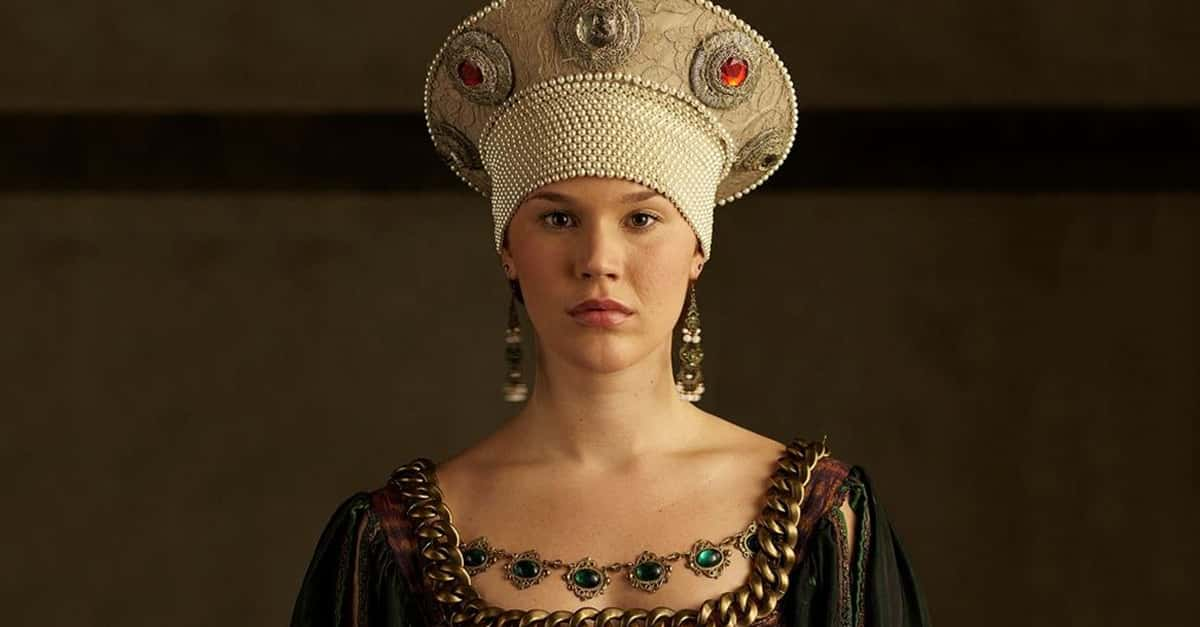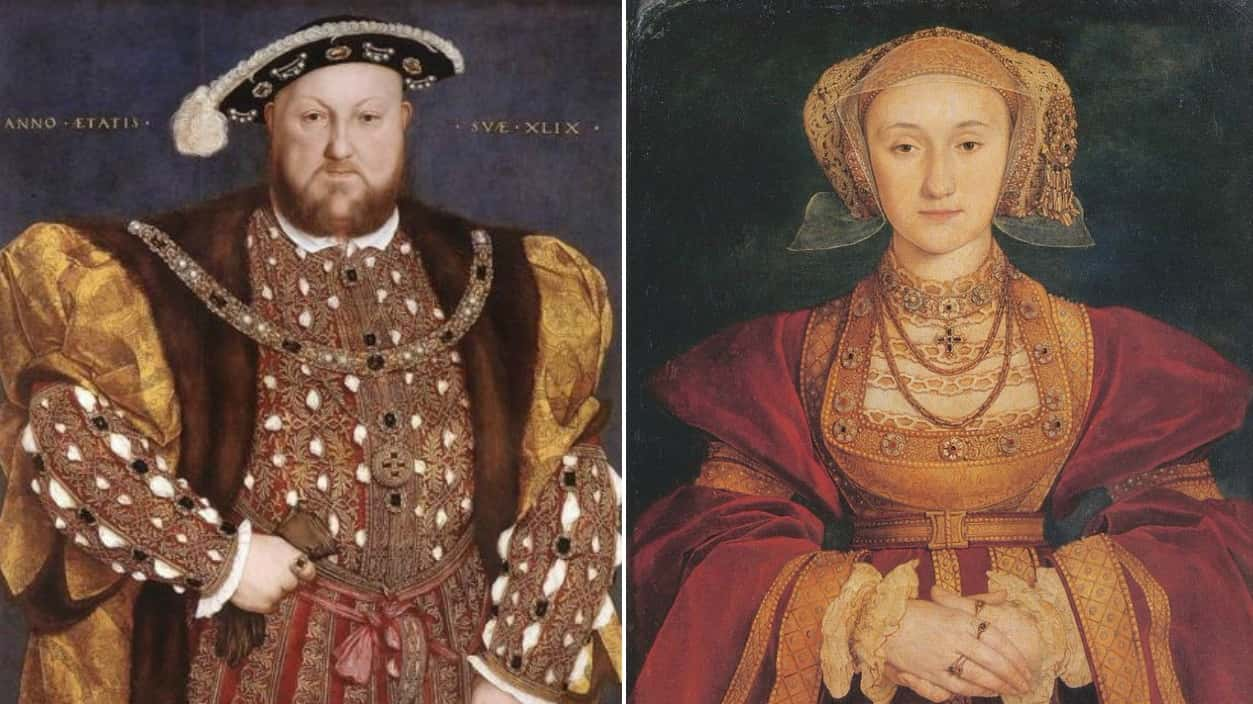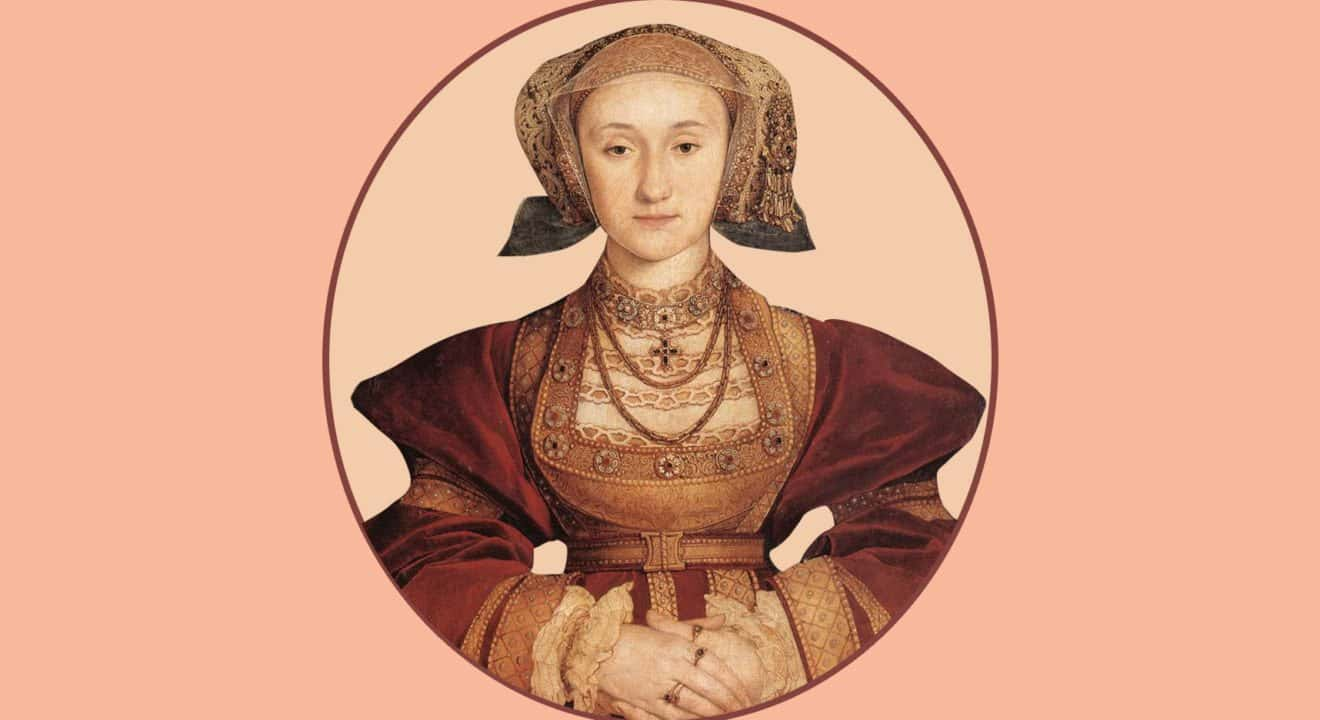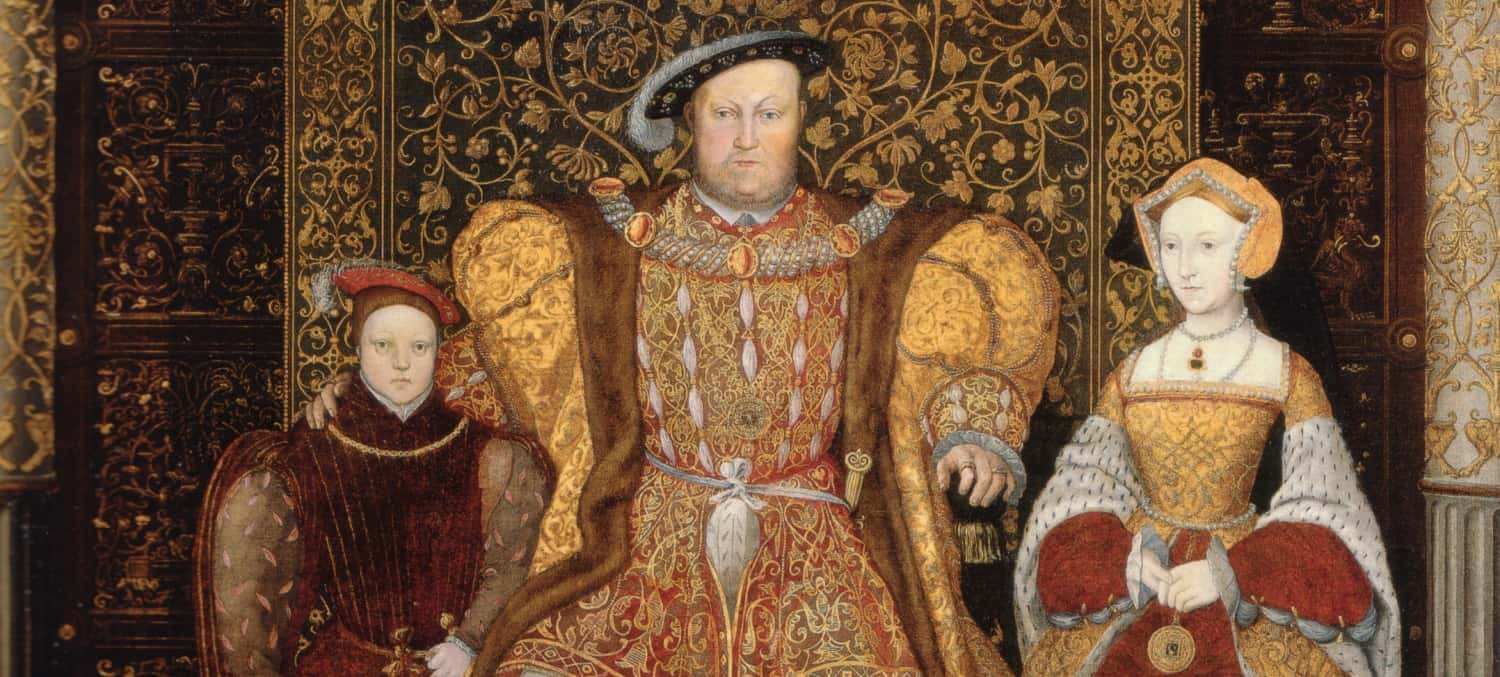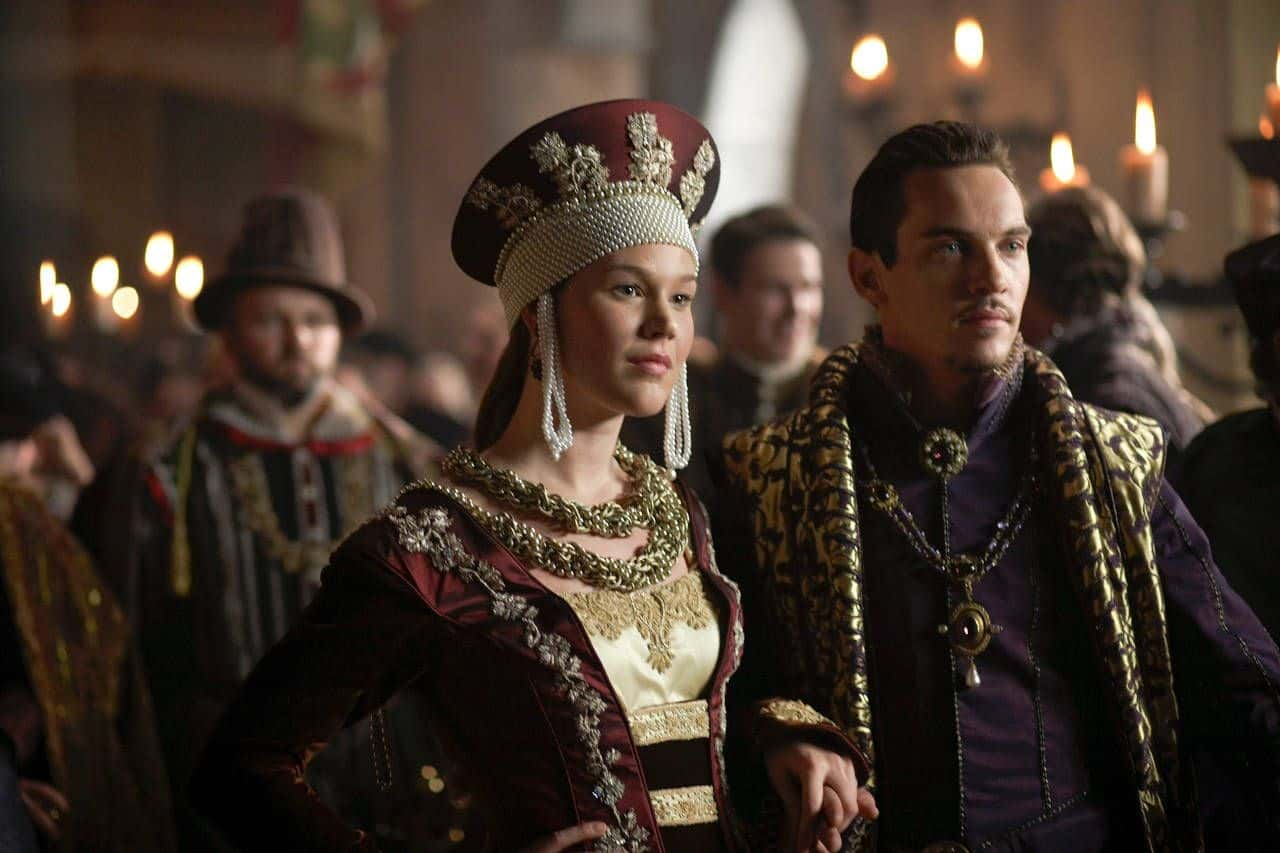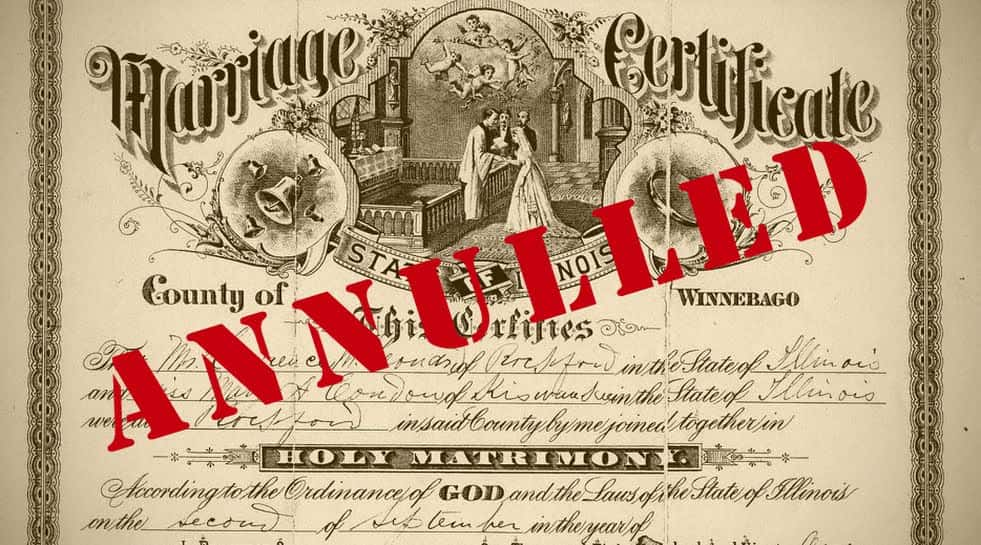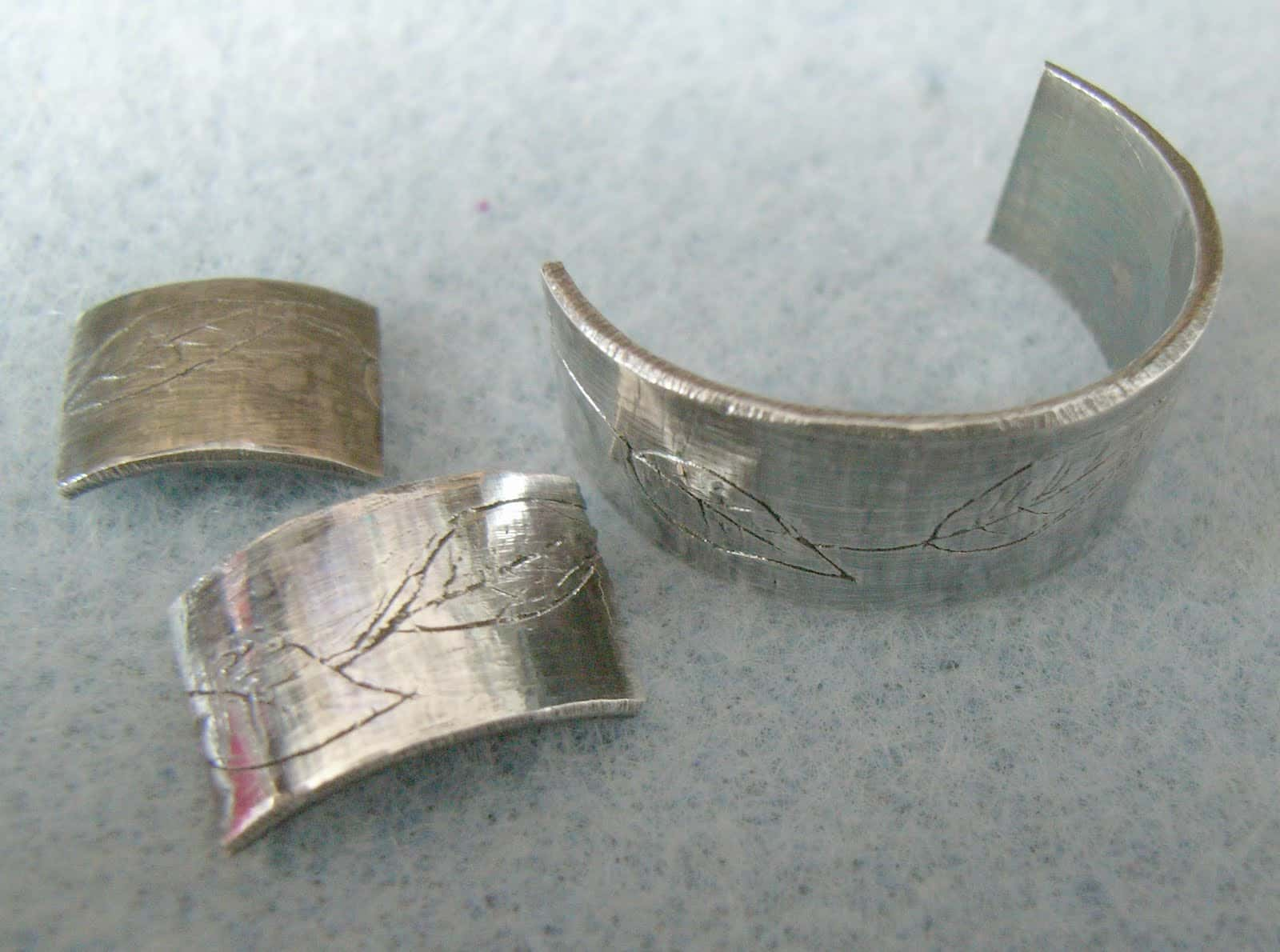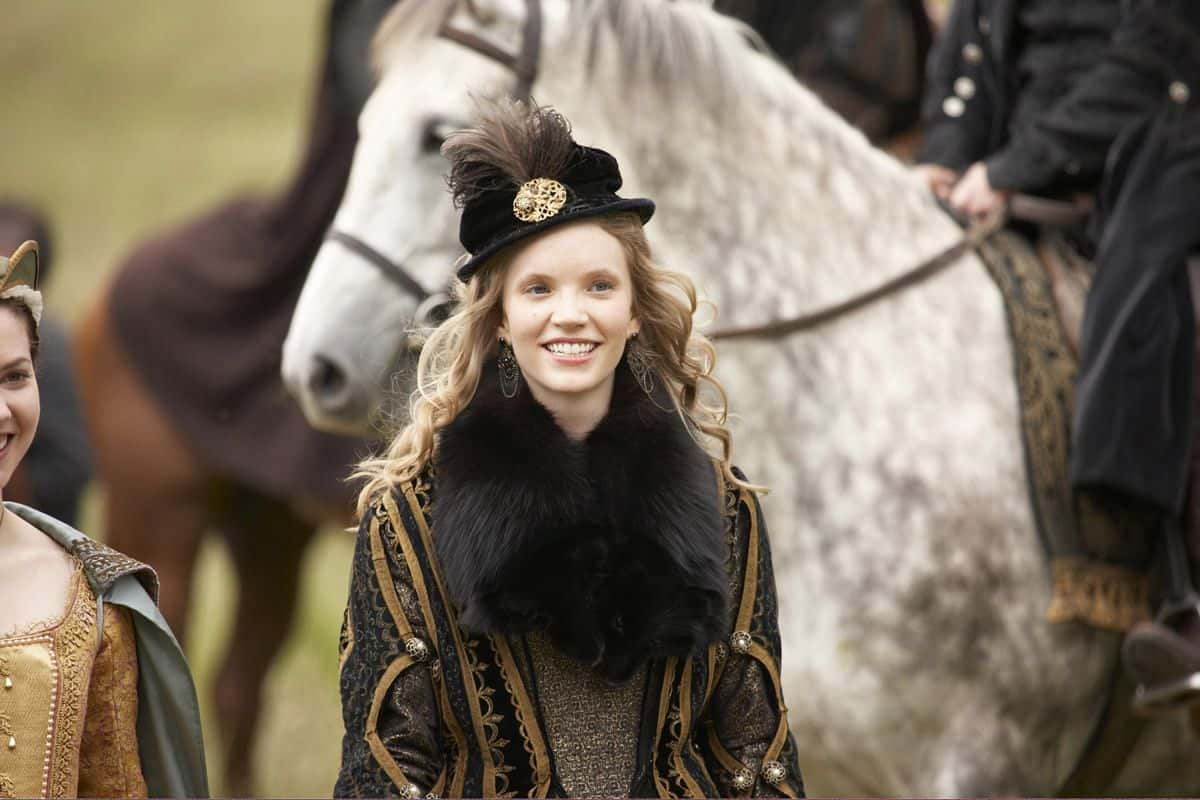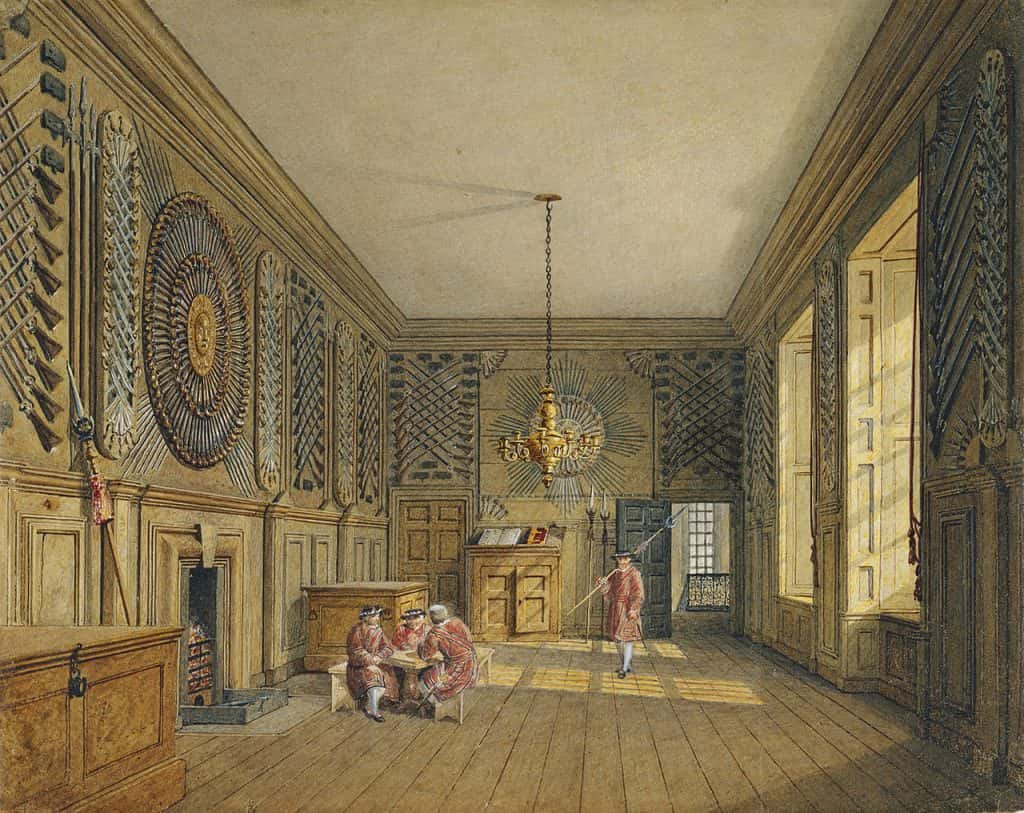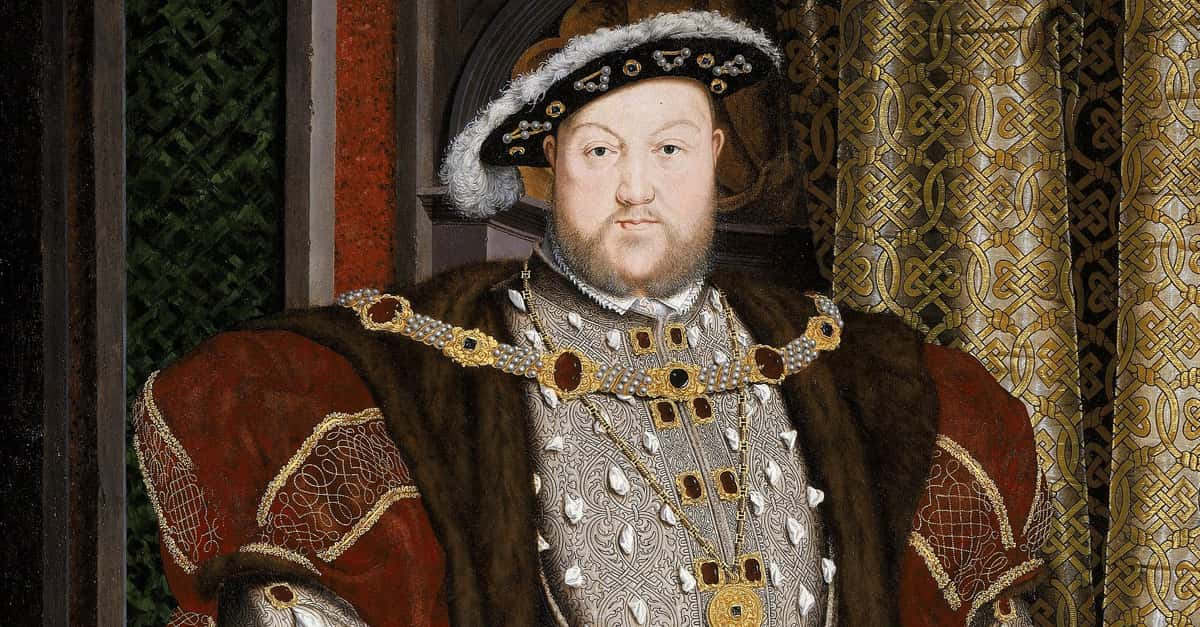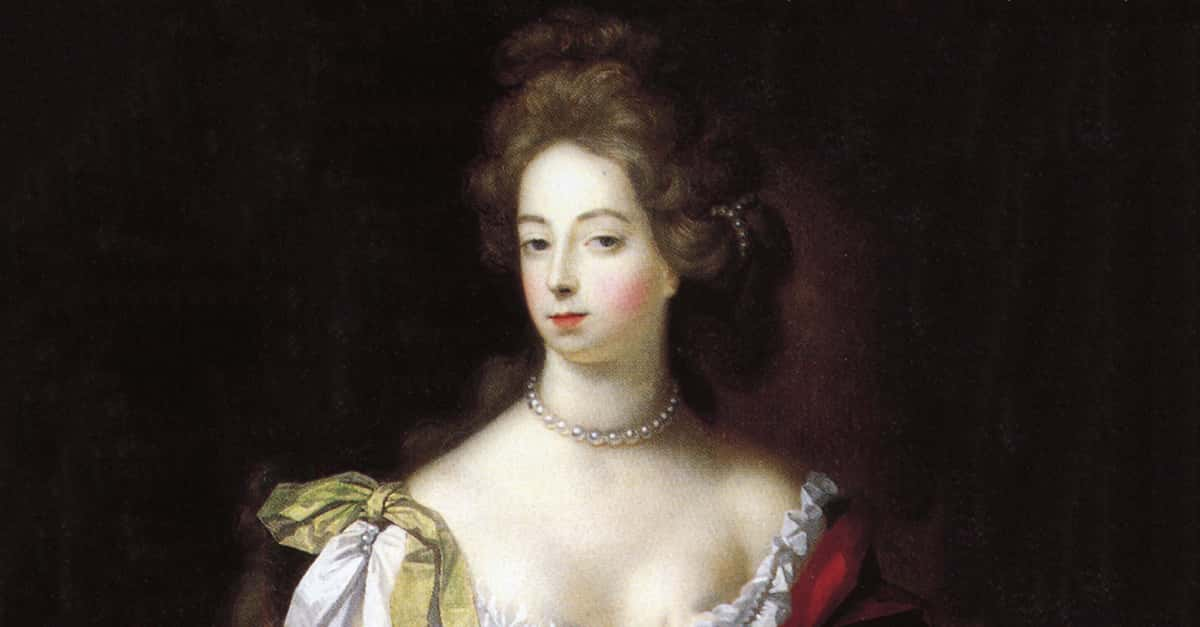In the saga of Henry VIII and his six wives, Anne of Cleves (b.1515-1557) holds her secrets tight. She gave him no children, they were married for barely half a year, and most surprising of all, she survived. Legend has it that Henry fell in love with Anne’s flattering portrait, took one look at her in real life, and then promptly did whatever is the 16th-century version of “Swipe Left.”
But was she as ugly as legend says? Did she take to their divorce so sweetly as the other legends say? Whatever the answer, there was a real woman behind that awkward medieval German headdress—a sheltered girl from a small duchy who was thrust into the international stage as Henry VIII’s fourth queen.
She entered the country as a foreigner and died as one of the few people in the Tudor saga with no real enemies. Just how did she survive? Find out with 32 headstrong facts about Anne of Cleves.
32. The Enemy of My Enemy Is My Wife’s Brother
Anne of Cleves and her family were politically—and literally—in bed with the Protestant Revolution. Anne was born on 22 September 1515 in Düsseldorf (modern Germany) to the House of La Marck. Her father, John of Cleves, was part of the Schmalkaldic League—a military alliance of Holy Roman Empire princes against Papal authority.
 CNN.com
CNN.com
31. A Chip Off the Old Block
Anne's dad wasn't just a rebel against the rule of the Papacy, though. John of Cleves was also hailed as a kind and forward-thinking ruler. He kept taxes low, and encouraged moderate treatment of those on the other side of his religious disagreements with the Pope. All of that earned him the nickname John the Peaceful.
Anne, who would later be described as peaceful and gentle herself, likely learned some of those mannerisms from her father.
 Flickr
Flickr
30. Loyalty Loyalty Loyalty
After her father’s death, Anne's brother remained sympathetic to the same Reformation causes; her older sister Sibylle herself was married to the head of the Protestant Reformation Confederation of Germany. Coincidentally, Henry VIII was also opposing the Pope in his own country. Thus, he had reason—beyond Anne’s “beauty” or lack thereof—to enter into a marriage alliance with Cleves.
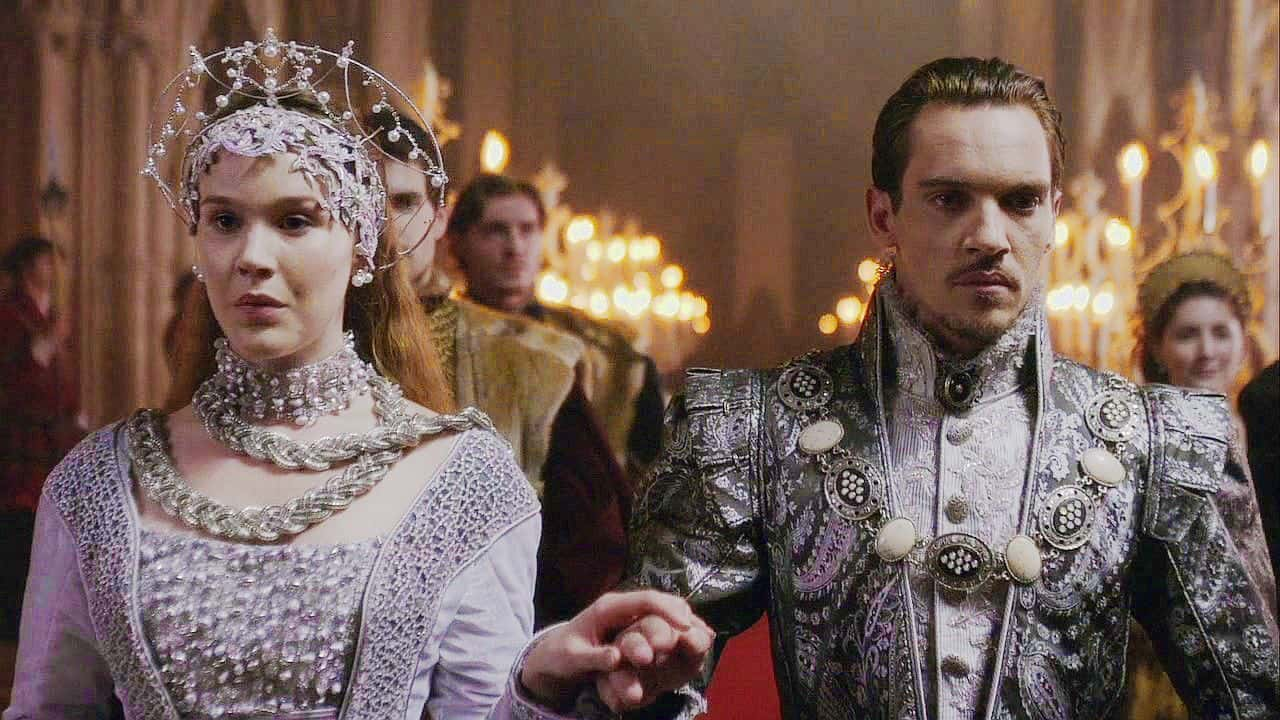 Pinterest
Pinterest
29. The Lady Doth Not “Protest” Too Much
Despite her brother and father’s sympathies, Anne was not deeply anchored to their faith. Instead, she was raised closely under the influence of her mother, Maria—a strict Catholic.
28. What's a "Cleve"?
The Duchy of Cleves was one of the provinces of the Holy Roman Empire. The land it covered is now Germany, as well as a small part of the Netherlands.
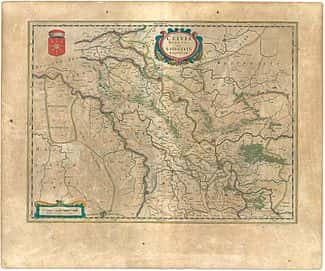 Wikipedia
Wikipedia
27. Fresh Fruit From the Family Tree
Even from her farflung homeland, Anne was a distant of cousin to Henry VIII. Like all his wives, Anne of Cleves is a descendant of King Edward I (“Longshanks”) of England (a nine-times great-granddaughter, for those who want to keep exact count).
26. Which Sis?
By the late 1530s, Henry VIII was entertaining both Anne and her younger sister Amalia as potential Wife #4.
He dispatched his favorite painter, Hans Holbein the Younger, so he could produce portraits of the sisters, which were to be as realistic as possible. Contemporaries held Holbein’s pictures to be pretty accurate depictions of the girls—not flattering misrepresentations, as the legend came to describe them.
25. Face the Facts
When it came time to do portraits of the Cleves sisters, Hans Holbein ran into one minor difficulty: they kept their faces covered. Presumably, they pulled the veils up long enough for Holbein to pull it off, as both portraits survive in museums to this day.
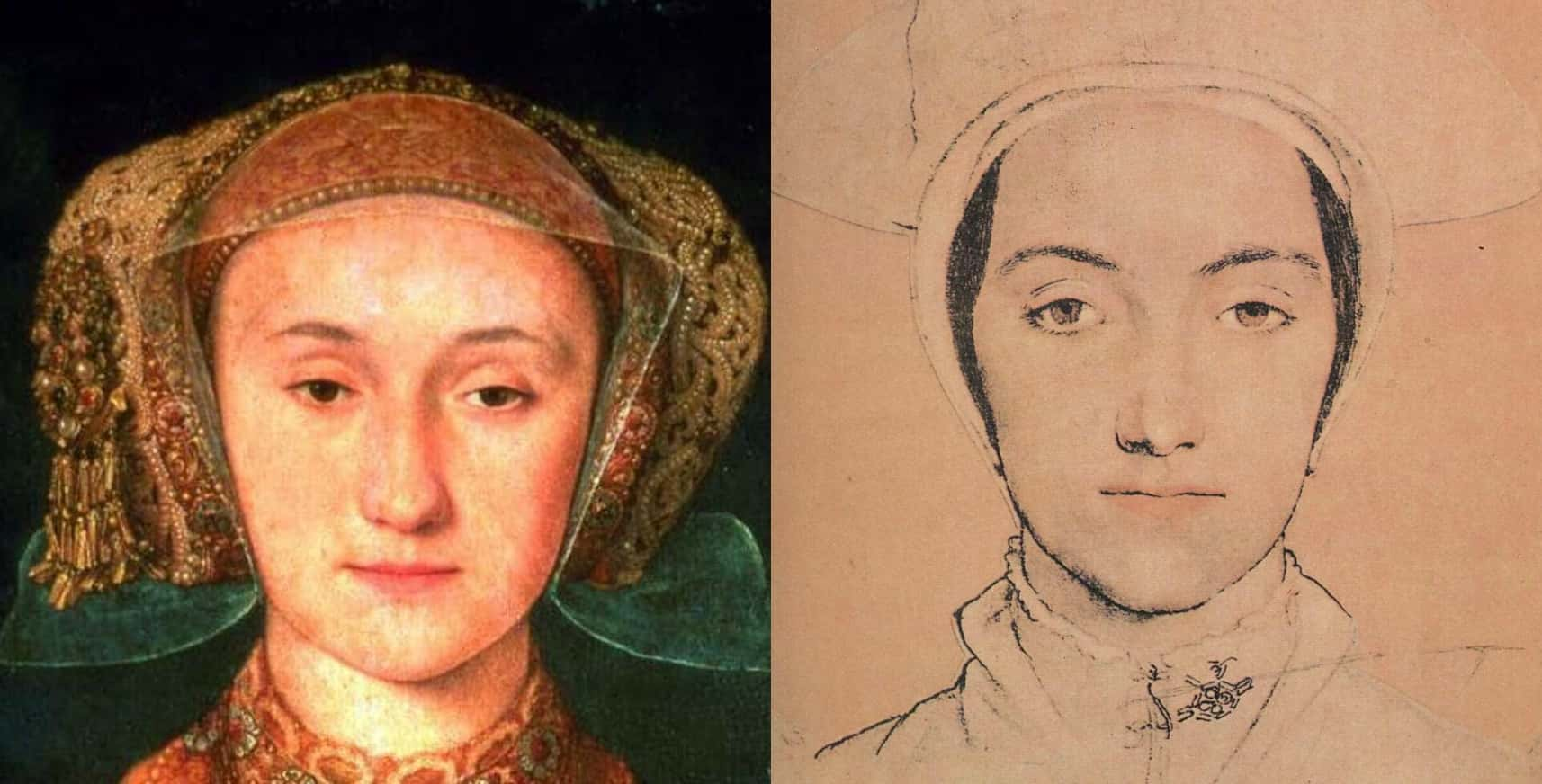
24. Age Isn’t Always “Just” a Number
At the time of their marriage, Anne was literally half Henry’s age. She was just 24 years old; he was 48 and, by most accounts, he really looked his age. Although Henry had grown up handsome and strong, years of gluttony and regal over-indulgence meant that by the time he reached middle age, he was incredibly slow and fat.
Still the King, though.

History's most fascinating stories and darkest secrets, delivered to your inbox daily.
23. Lucky He Never Had Tinder
Henry complained immediately about his wife-to-be's looks, and was perhaps miffed that she didn't match her portrait. But mostly he blamed courtiers such as Thomas Cromwell for exaggerating her beauty.
"She is nothing so fair as she hath been reported,” Henry is said to have grumbled. The uneventful wedding night made things worse. On the morning after the wedding, the king was said to have complained, “I liked her before not well, but now I like her much worse."
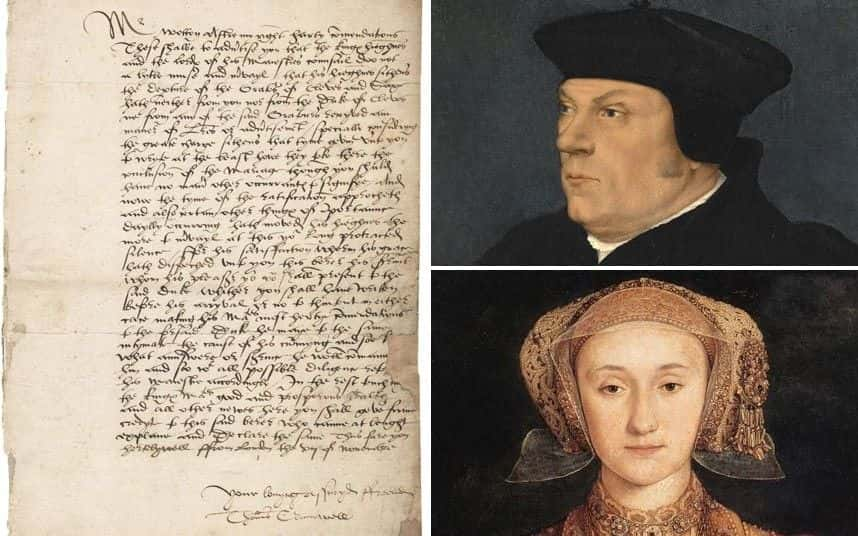 Pinterest
Pinterest
22. Hot Enough?
It’s the question we’re all here to learn: what did the legendary “ugly one” of Henry’s wives really look like? Was she really that ugly? Or was she secretly hot and just awkward? The answer probably lays in “attractive enough, I guess?” That was certainly the vibe evoked in Edward Hall’s chronicles, wherein Anne is described as tall with “yellow” hair and fashionable dress, “which so set forth her beauty and good visage, that every creature rejoiced to behold her.”
Flattering stuff, but she also was noted to have a “solemn face” that aged her a bit beyond her 24 years. Anne also had heavy-lidded brown eyes and a somewhat pointed chin. Depending on your tastes, any of these features could be “hot” or “not.” What matters is that she just wasn’t “hot enough” for Henry VIII.
21. Don't Shoot The Messenger
What's generally agreed upon by historians is that the portraits Hans Holbien the Younger produced of Anne were actually incredibly accurate for the time. Contemporaries are said to have commented on the extraordinary accuracy.
That shouldn't come as too much of a surprise: Holbien was one of the most prolific and talented panters of his day. Even now, his portraits and other paintings hang in some of the world's most prostigious galleries.
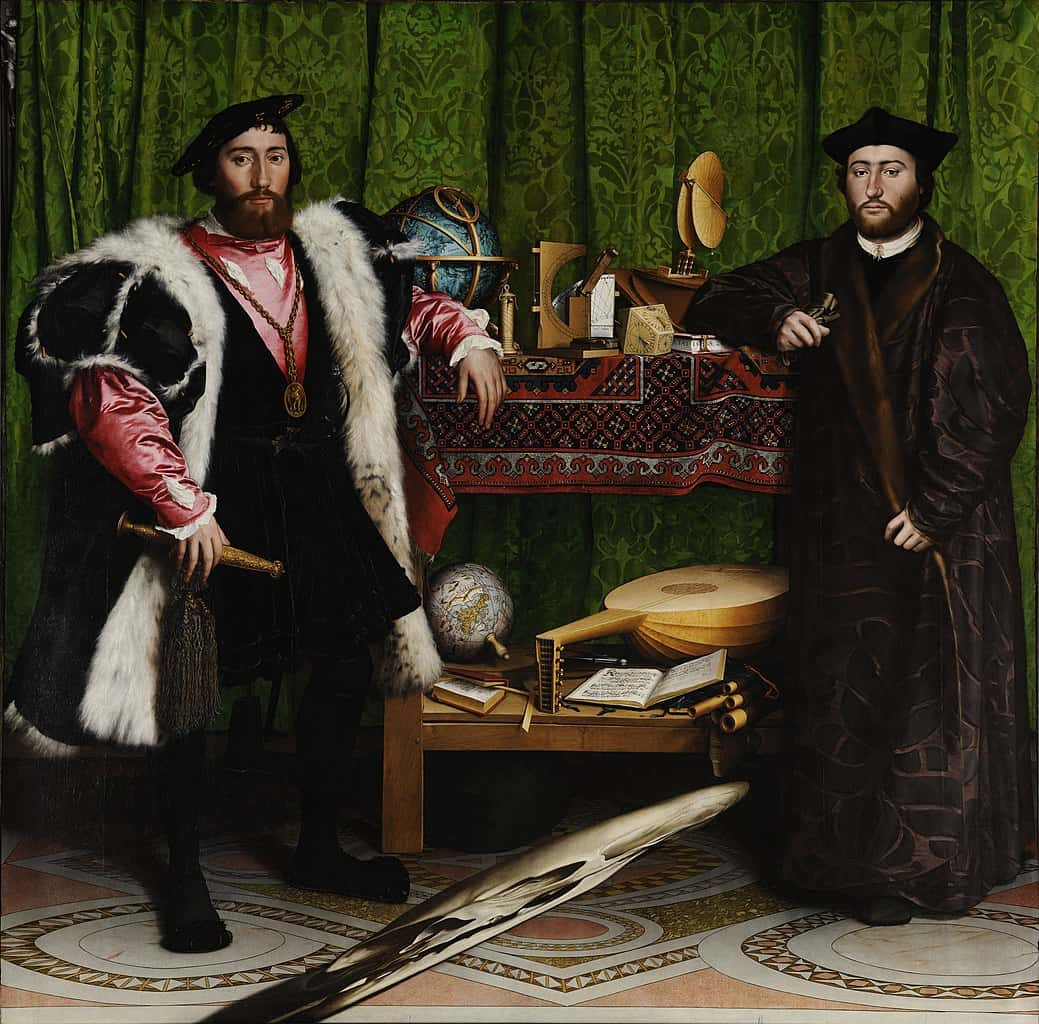 Wikipedia One of Hans Holbein's most famous pieces of work.
Wikipedia One of Hans Holbein's most famous pieces of work.
20. I'm a Cool Stepmom
Anne got along with all of Henry’s kids. She lived to see Mary I’s coronation and sent gifts to the king’s heir, the future Edward VI, which indicated a friendly relationship.
She also made an impression on the future Elizabeth I; when Anne died, she left her younger stepdaughter the “second best” jewel in her collection.
19. Who Needs Sex Ed?
Did poor and sheltered Anne even know how to consummate her marriage? When her ladies questioned Anne about her nights with the king, Anne reported, “When he comes to bed he kisseth me, and he taketh me by the hand, and biddeth me 'Good night, sweetheart'; and in the morning kisseth me and biddeth 'Farewell, darling.'"
There is a fair chance that Anne believed these kisses were all it took to seal the deal.
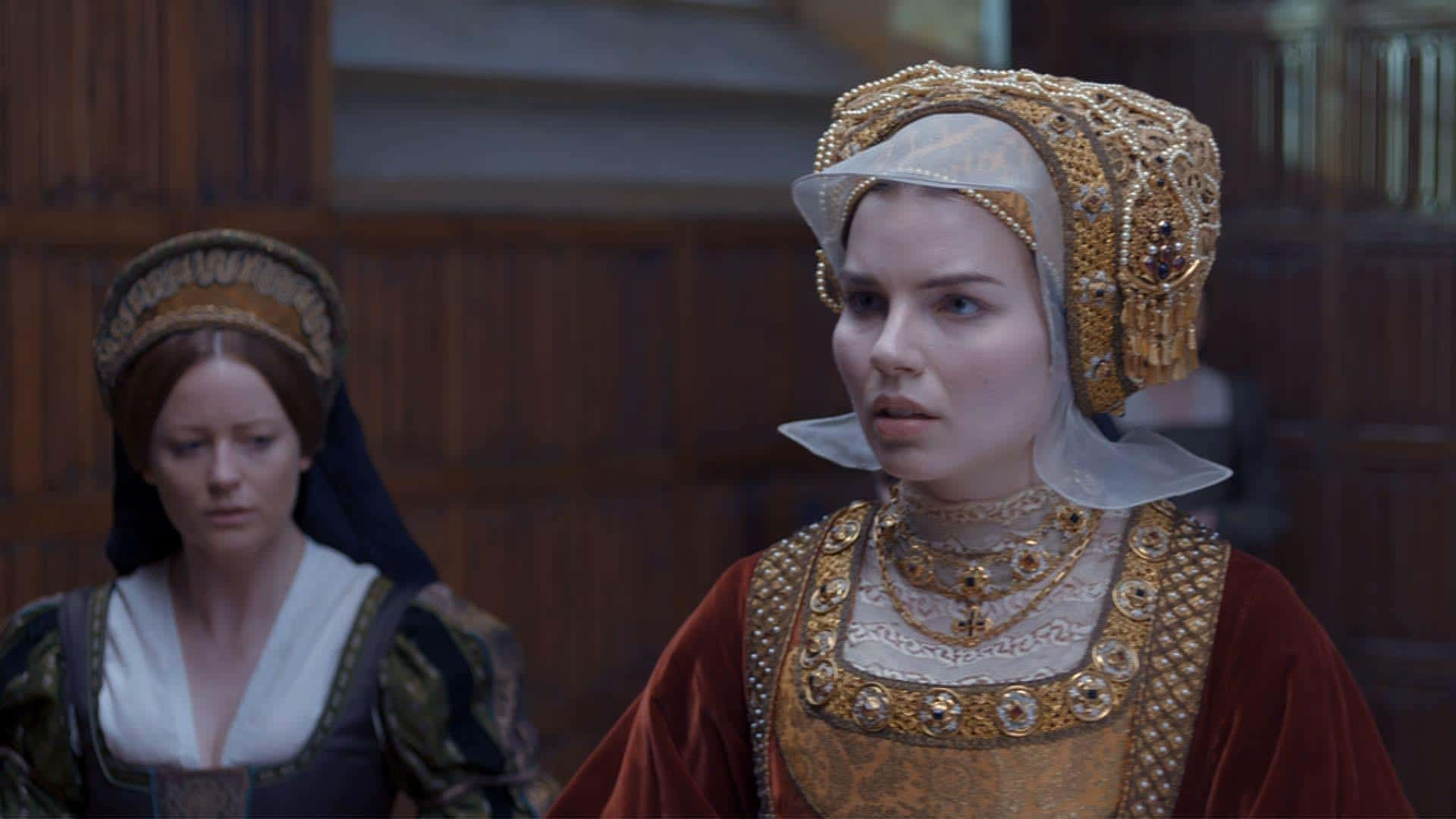 Pinterest
Pinterest
18. Say Neigh to This Name
Anne’s oft-repeated and cruel nickname, “Flanders Mare,” did not originate from Henry. In fact, it didn’t even originate from the Tudor period! The name only emerged in the late 17th century, when the history of Henry VIII grew into legend.
Anne was luckily spared the hurtful moniker during her lifetime.
17. Previous Engagements
In 1527, an 11-year-old Anne was informally betrothed to Francis, the heir to the duchy of Lorraine. Later, the match was cancelled, but it would bite her in the well-clothed back in January, 1540. Henry’s councilors, looking for a way out of the match, tried to use Anne’s childhood pre-contract to Francis of Lorraine as “proof” she was not free to marry.
16. Not Hard to Believe
The lack of consummation of the union also played well into Henry’s divorce proceedings. Nonetheless, Henry had physicians testify to his male vigor at the trial. It’s totally not Henry’s fault, guys, that the match was never “sealed.”
According to the doctor, his Majesty experienced an entire two “nocturnal pollutions” (i.e. wet dreams), even as he went to bed with Anne for days without consummating the marriage. In sum, the king was not impotent; it was only the marriage itself that was bad. He just needed you to know that.
15. School Doesn’t Prepare You for This
Literate in German and handy with a needle, Anne had a perfectly functional education for a European princess. She was even innately clever (and/or hardworking) enough to become fluent in English within a very short time. Unfortunately, her conservative family discouraged Anne from frivolities such as music, singing, and dancing. Even as her language skills improved, we imagine Anne and Henry (a lifelong geek of all arts) found little to talk about. Hence, emotional chemistry was just as difficult as physical chemistry.
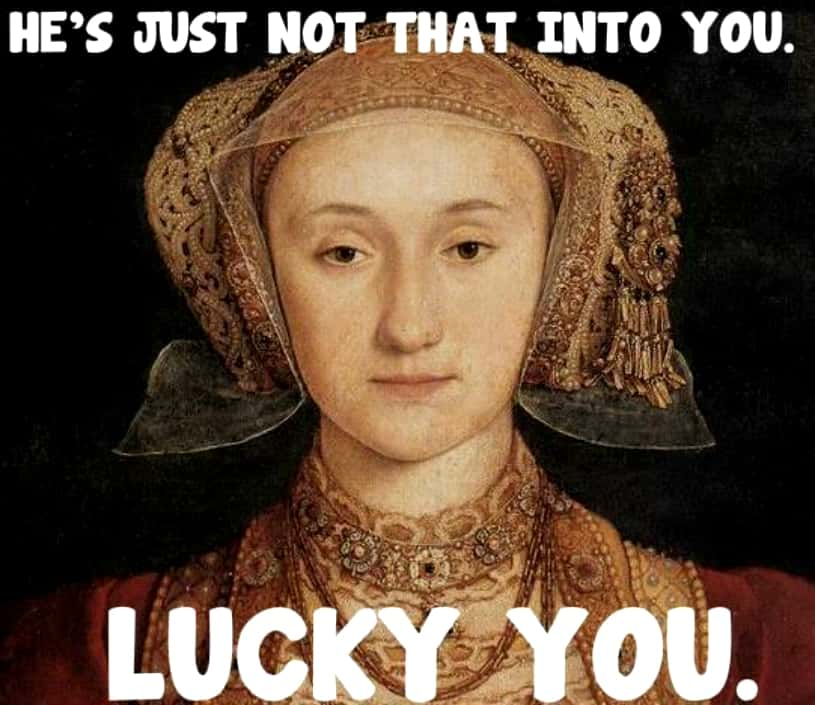 Pinterest
Pinterest
14. It’s About Quality, Not Quantity
Anne and Henry were married for only 6 months—the briefest of his marital adventures. The short and ugly union between Anne of Cleves and Henry VIII of England was officially annulled on July 9th, 1540. It turns out that the shorter the marriage, the sweeter the separation.
13. The Greatest Escape
Henry proved to be a generous ex-husband. We doubt Anne was super-elated to lose the sweet gig of Queen of England (even if it came with marriage to the infamous Henry VIII), but she fully agreed to Henry’s annulment. In return, Henry hooked Anne up like few ex-wives were hooked up before (or since); her severance deal included great manors, estates, and a sexy royal income.
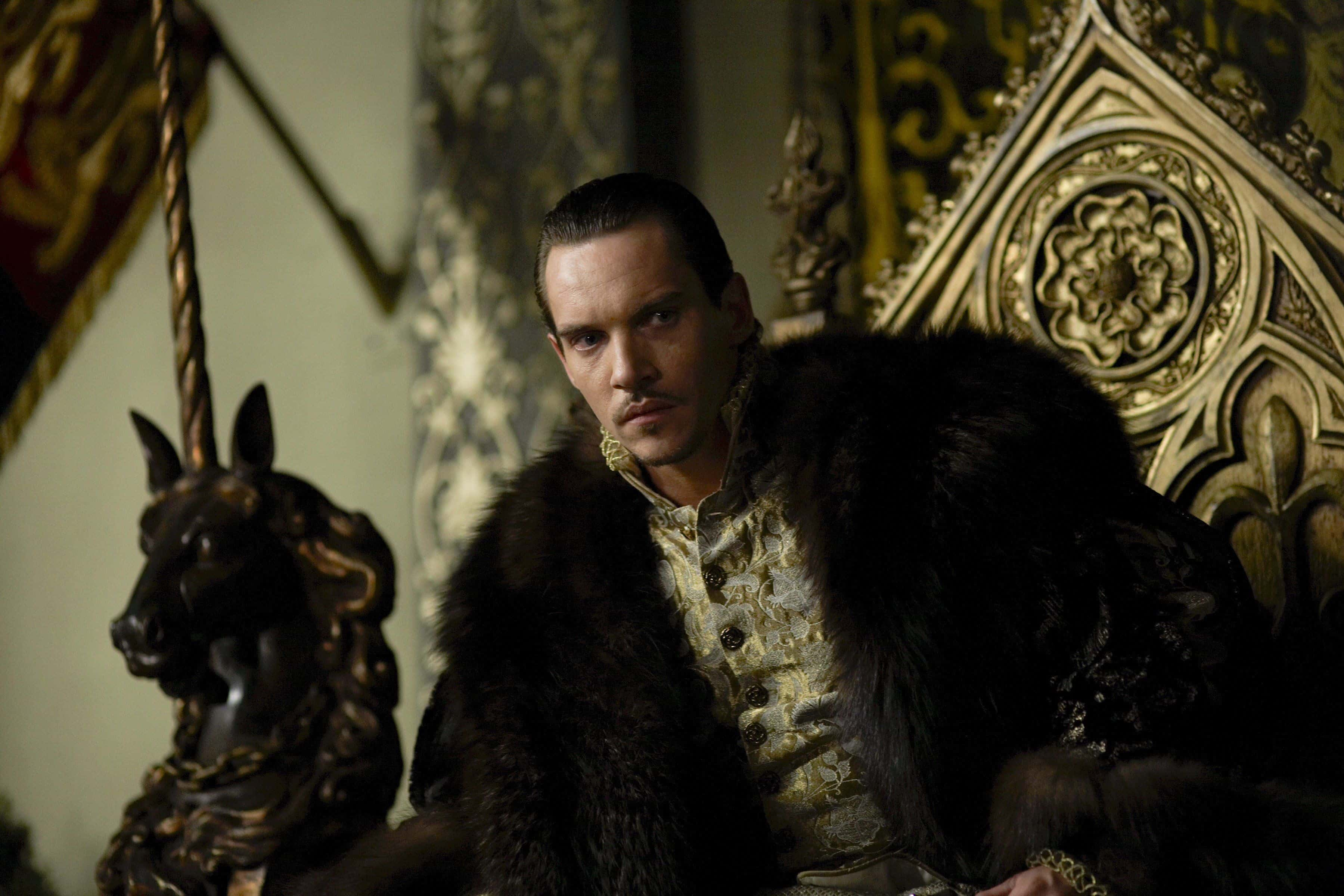 Pinterest
Pinterest
12. The First Lady?
Anne's "retirement" package didn't just come with land and money: it came with some pretty fancy titles too.
Henry ruled that Anne would be England’s highest-ranking lady until her death, with only the King’s wife and daughters ahead of her in precedence. She was even adopted in name as “the King's Beloved Sister”.
If only all divorces ended so sweetly.
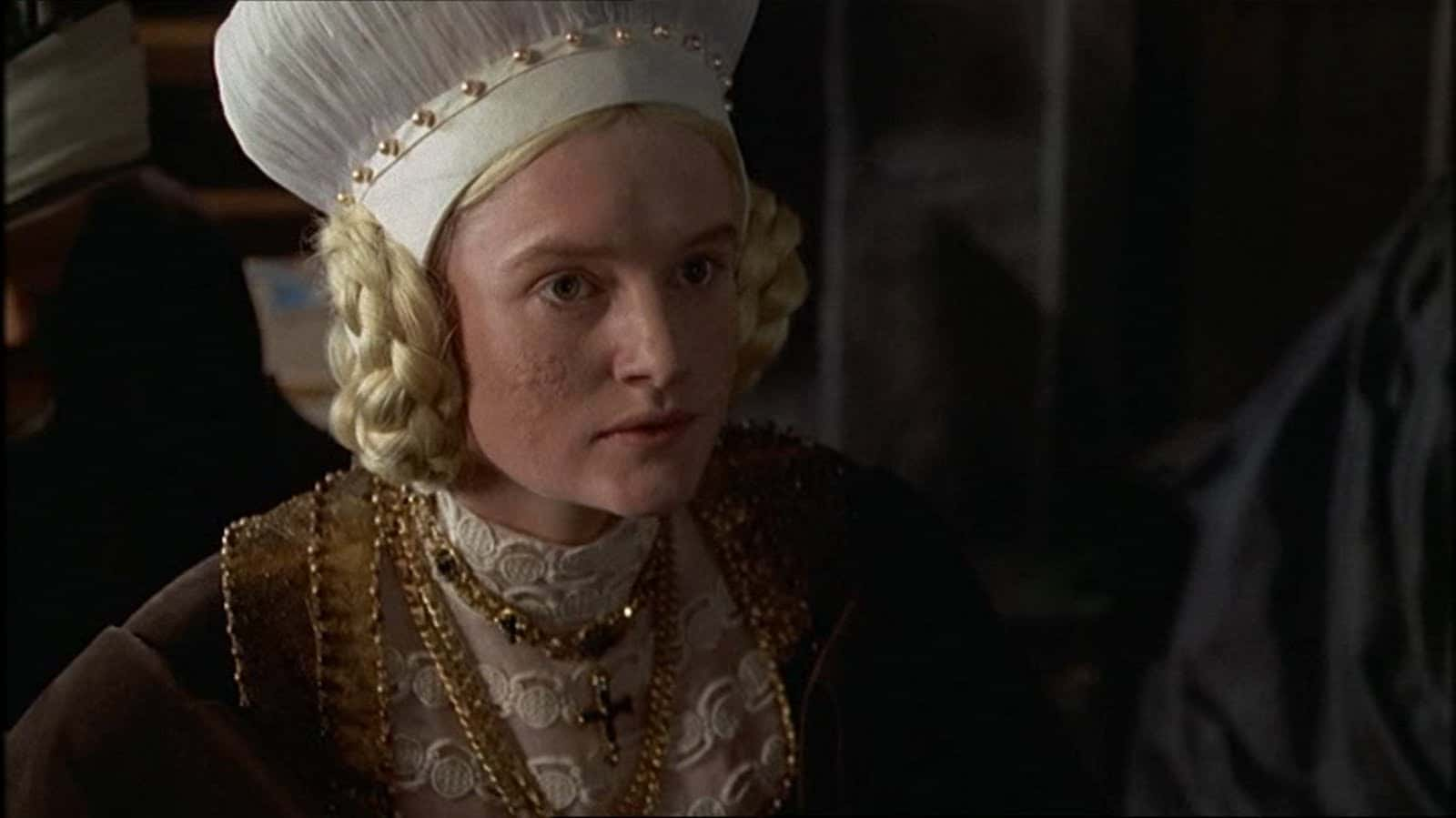 the tudors & other histories
the tudors & other histories
11. Where’s Frodo When You Need Him?
Anne’s wedding ring was inscribed with her queenly motto, “God send me well to keep.” Upon their annulment, Anne sent the ring back to Henry and asked for it to be broken apart as a thing of no great worth. (Too bad “Mordor” references weren’t a thing yet, because what is any divorce without one?).
10. Waste No Time
During his brief marriage to Anne, Henry was able to locate a queen-to-be for after their inevitable divorce: the young Catherine Howard.
In fact, he married Catherine within a few weeks of his official annulment from Anne.
9. Someone’s Got to Pay for This Mess
Anne survived her term as Henry VIII’s fourth wife. Some people did not...
Thomas Cromwell, the engineer behind the match in the first place, was executed for treason on the same day Henry married his fifth wife, Catherine Howard. That meant the man who Anne had to thank for her brief time as Queen lost his head on July 28th, 1540... the same year she had been married to Henry in the first place.
8. Maybe Baby (But Probably Not)
In November 1541, Anne of Cleves was rumored to have given birth to a secret child. Some even said it was the king’s own son! This was almost definitely a rumor gone wrong, but the crown launched a small but serious investigation anyways. Two people were even arrested for alleging Anne was Henry’s true wife after all. Nothing turned up, thereby banishing this gossip to the trivia halls of history.
7. Ex Marks the Spot
In public, Anne held no hard feelings about Catherine Howard replacing her on the throne (and in the marriage bed). For the New Year in 1541, Anne gifted her ex-husband and his wife two fine horses. She also joined the couple for dancing. Pretty cordial for an ex-wife.
6. Something's off
It wasn’t just about looks; Henry accused Anne of possessing “very evil smells about her,” and threw her virginity into question because of “the looseness of her breasts and other tokens.”
As you might tell from his way with words, Henry was a poet and songwriter in his youth.
5. Petty Theft
Henry could be a generous and petty ex. By early 1542, his new queen Catherine Howard was awaiting execution for treason. Lashing out, Henry sent Anne of Cleves a terse letter, wherein he ordered his adopted sister/ex-wife to return a royal collection ring, which Catherine had given to Anne as a Twelfth Night gift from last year. Way to strike at two exes in one swoop.
4. The Last Laugh
Anne is the longest surviving of Henry’s wives; she outlived not only the other queens, but also the king himself. On 16 July 1557, just months shy of her 42nd birthday, she passed away in her adopted country of England, most likely of cancer. As Queen Mary I’s beloved “aunt,” she was buried in the legendary Westminster Abbey. ” She is the only one of Henry's wives to be buried in the hallowed Abbey.
 Pinterest
Pinterest
3. A Big Honor
Despite the annulment of her marriage, the inscription on the back of Anne's tomb at Westminster reads, "Anne of Cleves Queen of England. Born 1515. Died 1557". Which is a pretty kind thing for the people who buried her to include, right? She may not have died as a Queen, but she did briefly rule as one.
Well, alas, the inscription wasn't actually there when she was first buried. This was the middle ages after all: being too kind to dead, divorced women was a little too much to ask for, apparently.
The inscription was only added by engravers in 1975. A loooooong time after her death.
Better late than never?
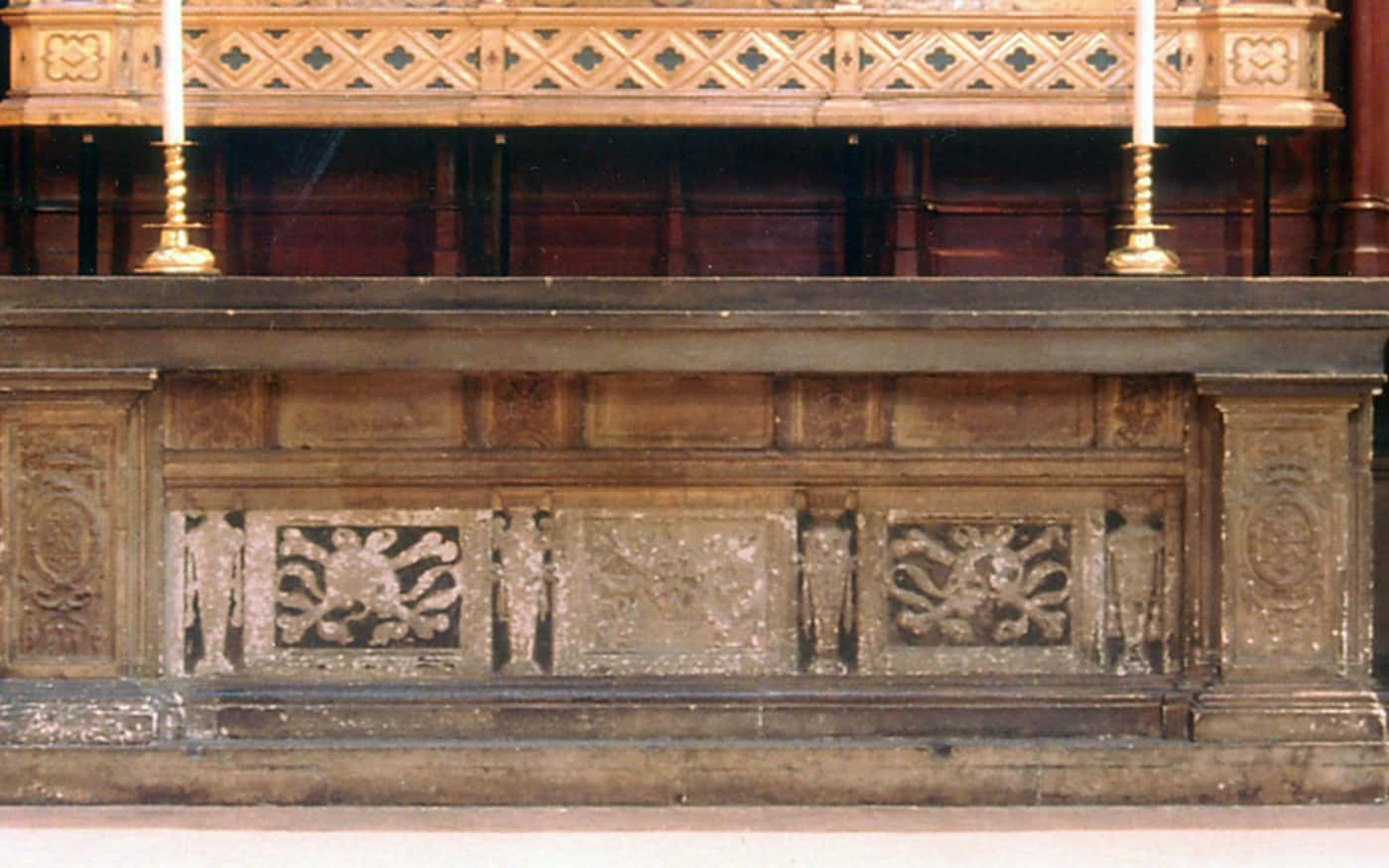
2. Never Settle for Less Than Me
Even long after her marriage to Henry ended, there hints that Anne held some hope of becoming Queen again.
When Catherine Howard was executed in 1542, Anne’s brother tried to pressure Henry into taking Anne back. Instead, Henry turned toward Catherine Parr—an English widow who was a few years older than Anne! We don’t know how Anne reacted to Howard's execution, but she reportedly did not like the idea of Parr as her replacement. I mean, Anne did think of herself as the more attractive option, but she also remarked, “Miss Parr is taking a great burden on herself.” Is it just me or does that sound like more of a swipe at Henry?
1. Why Don't You Understand My Cosplay?
One last thing: There may be another side to Anne's infamous story of being discarded by the King.
Anne’s first meeting with Henry was a diplomatic blunder: making her way to London, Anne’s party stopped on New Year’s Day 1540 at Rochester, where she took time to look at bull-baiting from the window.
Suddenly, an old burly stranger entered the room. Depending on the account, either this unkempt figure tried to get her attention and was politely ignored by Anne, or he outright tried to kiss and grope her, which understandably caused the young woman to ring the alarms. Unfortunately, the stranger was really Henry VIII in disguise. He had expected Anne to know her “role”—the maiden who could see through her chivalric suitor’s disguise via the power of “true love”...or something.
Anne was unimpressed, so, in emotional self-defense, Henry may have decided to be unimpressed with her.

